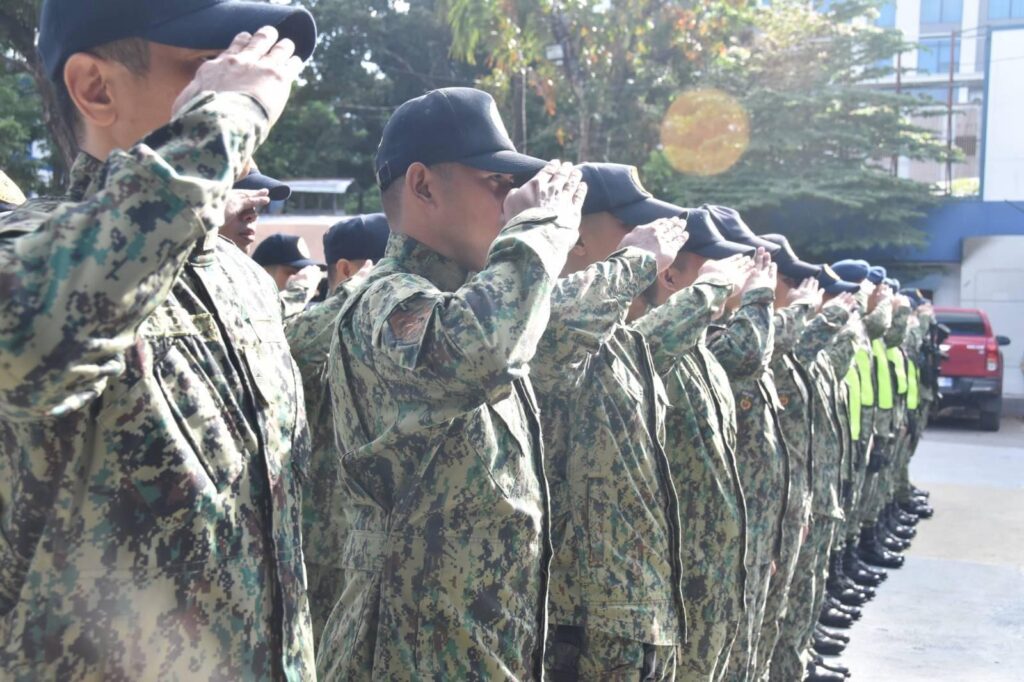
Personnel of the Cebu City Police Office | CCPO FB Photo
CEBU CITY, Philippines — The Cebu City Police Office (CCPO) will be conducting an inventory to have a list on the number of active policemen in the city with tattoos, specifically those who have visible ones when wearing the uniform.
This is in compliance with the Memorandum Circular 2024-023 issued by the Philippine National Police regulating the bearing and sporting of tattoos among law enforcers, applicants, and cadets in the academy.
READ MORE:
Cops told to remove visible tattoos to keep professional image
PNP issues memo to regulate visible tattoo among personnel, applicant
Shattering the ‘bad influence’ misconception of tattoos
“Og unsa man gani toy kamanduan niya sa taas, mao pud na among sundon diri sa ubos. So again, we have to comply with what is directed gikan sa taas,” said Police Lieutenant Colonel Janette Rafter, deputy director for operations of the CCPO.
(Whatever are the orders above, that is also what we follow here below. So again, we have to comply with what is directed coming from the top.)
Rafter said that they would be conducting an inventory to determine who among their personnel had tattoos on their bodies.
Police Lieutenant Colonel Gerard Ace Pelare, spokesperson of the Police Regional Office in Central Visayas (PRO-7), said in an earlier interview that this new instruction is directed towards personnel in active duty.
The memorandum dictates that all active policemen must have their tattoos, which are visible while wearing their uniforms, removed.
Tattoos that may be hidden by the police uniform, however, may not be removed.
Instead, officers are required to submit an affidavit disclosing the number and location of the tattoos on their bodies.
READ MORE:
No legal basis for PNP tattoo ban—lawmakers
NCRPO open to cops with tattoos
In addition to this, the affidavit must include an undertaking by law enforcers that they will not have any additional body art.
Rafter has also further emphasized that there is already a longstanding policy that prohibits individuals who wish to join the PNP from having any tattoos on their body.
Aside from tattoos, applicants must also not possess any ear piercings as part of the medical requirements to enter the Philippine National Police Academy.
Pelare, for his part, highlighted that this new policy was part of their regulations to ensure that law enforcement officers would remain to have an image of professionalism and propriety while on duty.
While the police force respects every individual’s right to express themselves, he said that the organization would strictly enforce its rules and punish those who would violate them.

